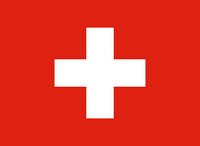 Nobody warned me substantially enough about Swiss German. To call it “Swiss German” in the first place is ridiculously misleading… it implies that the language is, in the end, a kind of German. Kind of like “American English”… to get from here to British English, all you have to do is say “boot” instead of “trunk”, “loo” instead of “restroom”, throw in a couple tag questions, and before you know it, Bob’s your uncle.
Nobody warned me substantially enough about Swiss German. To call it “Swiss German” in the first place is ridiculously misleading… it implies that the language is, in the end, a kind of German. Kind of like “American English”… to get from here to British English, all you have to do is say “boot” instead of “trunk”, “loo” instead of “restroom”, throw in a couple tag questions, and before you know it, Bob’s your uncle.
Not so with Swiss German and German. Although its roots are the same, Swiss German is a language all its own. There is a German woman in my Swiss German class, and she is just as bemused as the rest of us. Swiss German and German are about as similar as Spanish and Italian. If you speak one, you can make out some of the other, but they are definitely two distinct languages.
The similarities between Swiss German and German become clearer when one sees them written side-by-side; unfortunately, this rarely occurs in nature, as Swiss German is for the most part only a spoken language. Being able to recognize the written words is not going to help me at all except if I want to read the menu at the Crazy Cow, the only restaurant I’ve found that has the menu written entirely in Swiss German.
Luckily, this Swiss German class (which is about to draw to an end) has greatly increased my understanding of spoken Swiss German, as well. While I can’t really speak it with any degree of fluency, I can at least understand what my friendly neighborhood salespeople, postal workers, little kids and old ladies are saying to me when I encounter them out in the World Outside My Apartment. And usually, they understand me if I answer back in plain old German (everyone here learns German in school). So while I’m far from assimilation into my new homeland or becoming quadrilingual, at least I won’t have to say “Ich verstehe kein Schweizerdeutsch” 20 times a day anymore.
Just in case you too have a desire to communicate with the Tüütschschwiitzer (Swiss-German-speaking Swiss) in their native language, I offer you some of my favorite (if less useful) Swiss German words:
Gigelisuppe – a person who laughs a lot
Gfröörli – a person who always feels cold
Gwunderfitz – a curious person
Fäschtnudle – a woman who parties a lot
Chrüsimüsi – all mixed up
Gwafföör – hairdresser (basically the French word “coiffeur” pronounced with a heavy Swiss-German accent)
Wältschland – the French-speaking part of Switzerland
Rööschtigrabe – the imaginary line that separates French-speaking and German-speaking Switzerland (literally ‘fried potato ditch’, named after Rösti, the fried potato dish that is eaten on the German side but not on the French side)
what the fark IS that “language”? Strange strange strange. Tootschweillers aside, I love your blog.
hey, we eat Rosti here also!
Ok this comment is to be read to the tune of the underground level in Mario Brothers:
Comment Comment Comment
Comment Comment Comment
Comment Comment Comment
Comment Comment Comment
Comment Comment Comment on Julie’s blog
Ok, trying again. I’m amazed how many of those words apply to me, e.g. I’m a person who always feels cold and who laughs a lot. Does that make me a gfoorligigelisuppe?
So just to make this official….being a German native speaker doesn’t help a bit. Can you sign me up for this class you are taking. BITTE???
can I just say that I am so glad I have found your blog – it’s absolutely wonderful. I am moving to Zurich in the near future with much trepidation and your blog has really made things much easier for me.
Thanks!